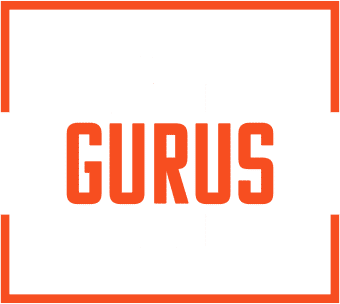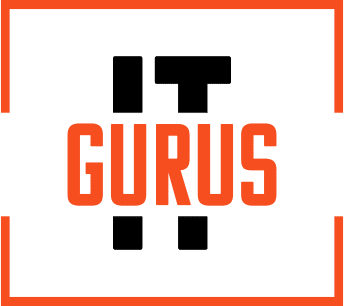Personal injury law, an essential field dedicated to securing justice for individuals who have been harmed due to the negligence of others, has historically been laden with complexities and challenges. From the meticulous collection and analysis of evidence to the seamless communication with clients and opposing parties, each step is crucial, demanding utmost precision and attention to detail.
Legal technologies have emerged as powerful tools, providing innovative solutions to navigate through these intricate pathways. Whether it’s leveraging automation to expedite document assembly or harnessing the power of data analytics to formulate strategic legal decisions, technology is reshaping the contours of personal injury law, promising a future where legal processes are more efficient, accessible, and equitable.
This article will expand on how legal tech trends can be harnessed to suit the needs of personal injury law firms, and the ways they will shape the future of these firms.
Automation
Automation refers to the use of technology to perform tasks without human intervention. In the context of legal work, this might involve creating documents, scheduling appointments, or even sending out communication to clients.
Legal firms can use automation for many tasks, including:
Document Assembly: Automation can generate legal documents by pulling relevant information from a database, ensuring that repetitive documents, such as forms and letters, are created quickly and accurately.
Client Communication: Automated emails or messages can keep clients informed about the status of their case, ensuring consistent and transparent communication.
Case Management: Automation tools can help in tracking case milestones, managing deadlines, and ensuring that lawyers are always ahead of their schedules.
Automation tools are greatly beneficial within personal injury law firms; they can significantly reduce manual labor of routing, repetitive tasks, allowing staff to focus on more valuable projects. This also ensures limited errors and keeps documents up-to-date.
Data Analytics
Data analytics involves examining, cleansing, and modeling data to draw conclusions and support decision-making. It can reveal patterns, correlations, and insights that might otherwise go unnoticed.
Personal injury lawyers can use data analytics for:
Predictive Analytics: Lawyers can analyze historical data to predict outcomes of cases, enhancing their strategic planning and decision-making.
Risk Assessment: By scrutinizing data, lawyers can identify potential risks and challenges that might arise during a case, enabling them to devise informed strategies.
Data analytics allows for better strategic planning and resource allocation, enabling lawyers to make more informed decisions and strategies. These tools can also be used to provide data-backed counsel with consulting with clients, reinforcing the firms’ credibility and client confidence.
Artificial Intelligence and Machine Learning
Artificial Intelligence (AI) and Machine Learning (ML) refer to computer systems’ ability to perform tasks that typically require human intelligence, such as understanding language, recognizing patterns, and learning from experience.
They can be used within law firms for:
Legal Research: AI can swiftly sift through vast legal databases, providing lawyers with relevant case laws, precedents, and legal literature.
Chatbots: AI-powered chatbots can interact with clients, providing them with instant responses and information, thereby enhancing client service and engagement.
AI-powered tools provide much needed efficiency and agility, drastically reducing the time lawyers and staff spend searching for data, documents, and other relevant resources. They can also be used to analyze data from various historical cases to suggest potential strategies, or identify certain patterns.
Cybersecurity
Cybersecurity involves protecting systems, networks, and programs from digital attacks. It’s crucial in safeguarding sensitive information from unauthorized access, damage, or disclosure.
A wide range of cybersecurity tools are available, all covering various aspects of cyber defense. These are just a few of their uses for personal injury law firms:
Data Protection: Strong data loss prevention tools like encryption and firewalls ensure that personal and case-related data of clients is shielded from unauthorized access.
Secure Transactions: Implementing secure payment gateways and encrypted communication ensures that financial transactions remain confidential and secure.
Compliance: Ensuring that data protection practices are in alignment with legal and regulatory requirements, like the General Data Protection Regulation (GDPR), is crucial in avoiding legal repercussions.
Strong cybersecurity and data protection defenses foster client trust and mitigate risk. In an industry that handles very sensitive information, it’s critical to implement and maintain a robust security foundation, as a data breach or other cyber incident will result in reputational damage, fines, and severe legal ramifications.
Cloud Computing
Cloud computing involves using computing services (like servers, storage, databases, networking, software) over the internet (“the cloud”) instead of your own computer’s hard drive.
The cloud presents a wide variety of uses, including:
Cloud Storage: Platforms like Microsoft Azure allow firms to store data securely online, providing accessibility to authorized personnel from anywhere.
Project Management: Cloud tools enable teams to coordinate on cases, keep track of deadlines, and manage tasks efficiently.
Legal Software: Cloud-based legal practice management solutions like Clio or MyCase provide features like case management, client communication, and document storage in a secure online environment.
Numerous benefits abound from utilizing cloud computing; for one, it allows work-from-anywhere capabilities, as all resources are accessible online. It’s also greatly cost-effective, reducing the need for additional software and hardware. Cloud providers generally offer subscriptions on a pay-as-you-go model, ensuring users only pay for the resources they need.
Future Outlook: Legal Tech and Personal Injury Law
Law firms navigating through the realms of personal injury claims will increasingly find digital tools to be essential components for sustaining and growing their practice. Embracing these tools signifies keeping pace with the times, and unlocking newer, more efficient methodologies of serving justice.
Data will continue to be a cornerstone in strategic legal decisions. CLOC’s State of the Industry Report claims while 84% of respondents said handling data analytics was a major responsibility, only 43% said their skills were advanced. Further amalgamation of legal knowledge with data analytics will empower firms to make more informed decisions, tailor their strategies with precision, and offer a more transparent and insightful counsel to their clients.
Legal services will likely transition towards a hybrid model that combines traditional legal expertise with digital solutions. This model will enable lawyers to leverage technological tools without compromising the personal touch that is intrinsic to client relationships in personal injury law.
Discover the Right Legal Tech for Your Law Firm
Technology is not just an accessory but a pivotal ally in steering the course of justice, especially in the realm of personal injury law. The adoption of modern digital technology is unlocking new possibilities and avenues for lawyers and clients alike.
ITGurus brings a wealth of expertise to ensure that your law firm is equipped with cutting-edge IT solutions that will streamline processes, enhance cybersecurity, and provide data-driven insights to guide your case strategies. Reach out to us today.


